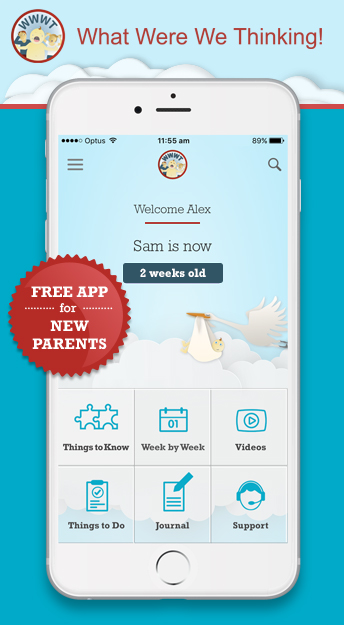Keeping your baby in mind at family gatherings
By Jane Fisher

Whatever traditions we have come from, family gatherings are common at the end of one year and the beginning of the next one. These can be occasions when a new baby is introduced to our wider family and friends.
Adults have all sorts of strategies to manage big gatherings. They can call on past experience to anticipate who they want to see and talk to, and who they prefer not to; they can move away from, or approach people, at their leisure and can steer the conversation away from sensitive or difficult topics. Noise can be difficult, but there is usually an option to go to another room, or outside, or to turn music down if it is too much. They can even leave and go home when they are tired. Babies, on the other hand, cannot do this.
It is wonderful to experience other people being excited to meet the baby and to celebrate the baby’s arrival, but it is important to keep the baby’s experience and capacity to understand and adapt in mind.
Babies need to learn about the world and their relationships quite slowly and in a step-by–step way. In the earliest days of life they are most able to attend to their parents. Gradually over the subsequent months they can begin to recognise and respond to other people, including their siblings and grandparents. In general however, large gatherings of a lot of people can be overwhelming to a baby.
Babies naturally turn their gaze away from direct eye contact when they need to recover, but this is difficult if other people are not aware of the baby’s limited capacity to maintain sustained eye-to-eye contact. Loud or shrill voices, laughter or a lot of background conversation can be alarming. We would not want to make close physical contact with someone we have never met, but handing a baby to a person the baby has never met is asking the baby to do this. Babies cannot avoid these situations and can become over-stimulated and distressed.
Try to imagine the situation from the baby’s point of view and then advocate on the baby’s behalf, even if other people undermine you. Babies benefit if the feed-play-sleep routine can be continued, even during family gatherings. They can manage social interactions most easily during the ‘play’ phase which is after a good sleep and when they have been fed. For a young baby this is not a very long period!
Introduce babies to people one at a time. Set an example of speaking to the baby in a quiet voice and understand that it is better not to hand the baby around to other people unless the baby knows the person, or you’re confident that they will not be intrusive or insensitive. When the baby is asleep, it is better not to allow other people to go in to visit them – this is when they need time to rest and recover.
I think it is useful to think about the baby’s human rights to being treated as an infant, and not as a little adult, during family gatherings. A baby is not an object of entertainment but rather a very young person who will come to know and love the family, but needs to be able to do this at a gentle pace.
Jane Fisher is Clinical and Health Psychologist and Professor of Women's Health. She has been a sessional consultant to Masada Private Hospital Mother Baby Unit since 1996. Jane's research focuses on understanding and addressing the factors that influence women's and men's health and wellbeing during pregnancy and the life phase of caring for young children.
Posted in: Baby 0-4 weeks Crying settling sleeping Every baby is different Parenting Experts








